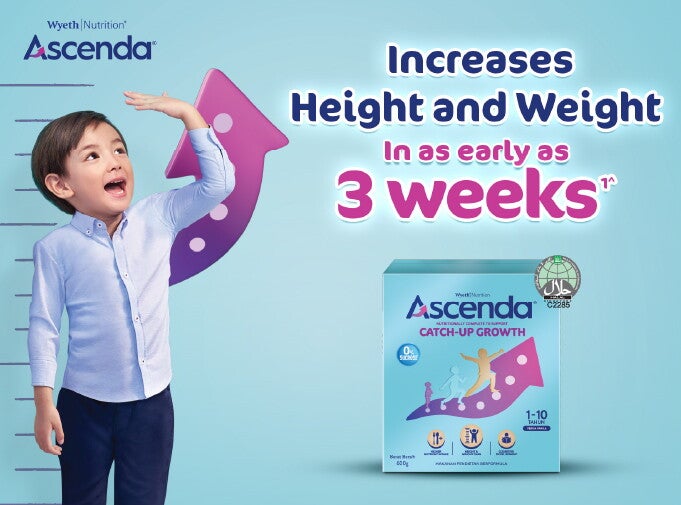
Top Essential Questions To Ask Your Doctor During Your Child’s Check-up!
As a parent, you might have a lot of questions regarding your child’s growth and health. But has this ever happened to you? As the doctor wraps up the visit, you realise there are still several questions lingering on your mind and you end up with a pang of regret.
While this is common for most parents, it is imperative that you ask the right questions during your visit to fully understand your child’s growth and physical development. Engaging in open communication with your doctor promotes a shared understanding and empowers you to make informed decisions for every checkup.
Asking the right questions is the key to achieving this. Therefore, we've compiled 3 key questions to guide you in your conversations with your child's healthcare professional.
1. What specific measurements do you take, and what do they tell us about my child's growth and development?
During your visit, your doctor may take your child’s measurements of weight, height, head circumference, mid-upper arm circumference and among others to measure your child’s growth. While these measurements are considered a standard practice, you can take proactive action to know more details regarding these numbers and what they tell you about your child’s health.
These are some of the measurements that they may take to track your child’s growth:
- Weight: This is typically measured using a digital scale for young toddlers and a standing scale for older children. Regular weight monitoring helps assess growth patterns and identify potential issues like underweight or overweight issues.
- Height: This is measured using a stadiometer for children over 2 years old and to track their overall growth. This measurement will also help doctors to identify any potential concerns regarding the child’s height.
- Head Circumference: This helps monitor brain development, especially in the early years of childhood and to identify any possible abnormalities.
- Mid-upper arm circumference: This provides information about your child's body proportions giving insight about a child’s body symmetry and potential growth issues.
2. What does this percentile tell me about my child's growth and development?

Z-scores are a common indication used by paediatricians to track your child's growth. Similar to percentiles, they tell you how your child's measurements (height, weight, head circumference) compared to a large group of children of the same age and sex.
To illustrate, during your visit, the doctor will use BMI (Body Mass Index) to measure your child's growth in relation to the child's age and to indicate whether the child is at healthy weight.
The WHO growth charts such as the BMI-for-age helps to indicate the BMI of the child against children of the same age and sex starting at age of 2.
Above 1 z-score: Possible risk of overweight
Above 2 z-score: Overweight
Above 3 z-score: Obese
0 z-score: Normal weight
Below -2 z-score: Underweight
Below -3 z-score: Severely underweight
If there is any reason for concern, it might be meaningful to speak out to your doctor to find out what percentile your child is in and what that says about your child’s growth and development.

3. What Are Some Common Causes for Lack of Growth and What Can I Do?

Many parents may not be fully aware of potential signs of growth concerns in their children and understandably, it is a long road and an ongoing process for the parents. This question itself can help shed some light into the things concerning your child’s growth which will empower you to seek professional guidance.
If you notice your child’s growth seems delayed, fret not as many parents share similar concerns and there are numerous ways on how you can take proactive measures. There are many factors that contribute to the delayed growth in children. Hormonal imbalances or nutrient deficiency are one of them. In fact, growth faltering or stunting in children can be caused by inadequate dietary intake. By consulting with healthcare professionals they are able to give more detailed explanations about your child’s growth and overall health.
Parents play a crucial role in preventing nutrient deficiencies by providing their children with well-balanced meals. Many studies have shown that energy-dense and nutrient-rich formula milk, like ASCENDA®, can support catch-up growth in children. By supplementing your child's meals with ASCENDA®, you can provide them with the essential nutrients they need to thrive. ASCENDA® is a Nutritionally Complete Formula scientifically formulated to support catch-up growth with 38 key nutrients. Two servings per day of this energy-dense and protein-rich food provide 100% of your daily iron and zinc needs.
Knowing your child's growth and development is important. While medical visits may seem overwhelming, many resources and strategies are available to help you actively contribute to your child's well-being and ensure they reach their full potential in terms of growth and development.
Dear parents, ready for the next appointment? You are now empowered with knowledge and questions to ask at your next medical visit pertaining to your child’s growth. Be sure to be thorough and as detailed as you want when you ask questions to healthcare professionals and always leave the clinic feeling confident in your understanding.


















